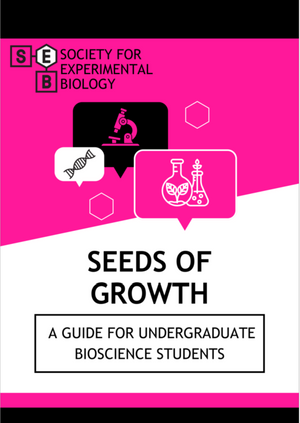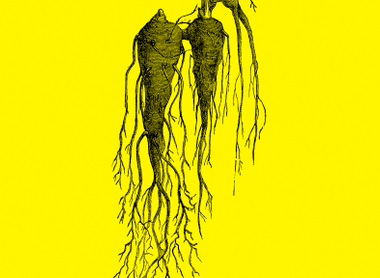
Why Study Biological Sciences?
The biosciences cover a broad range of topics and specialist subjects, all linked to the study of living organisms and life on earth. This means you can choose subject areas that most appeal to you, from biochemistry, cell biology, plant biology, conservation, ecology, genetics, microbiology, pathobiology to physiology.
The subject you choose as a degree can be considered a blanket term; the specific content of each course will be very different depending on the modules you choose. It’s useful to look at the different modules at the universities you are applying to, as course content can vary significantly between universities. In the first year of your degree, you are likely to cover a wide range of topics, choosing your preferred areas to focus on in the second and third years. This is good if you haven't decided on a specialist area yet and would like to be more flexible in your studies.
Some examples of undergraduate degrees in the biological sciences:
- Animal Behaviour
- Biological Sciences
- Biotechnology
- Marine Biology
- Microbiology
- Biomedical Sciences
- Ecology
- Marine Biology
- Natural Sciences
- Neuroscience
- Nutrition
- Zoology
For more guidance:
What Can You Do with a Biology Degree?
Many graduates will choose to study at the postgraduate level, either doing a research masters or PhD. This allows you to begin a career in scientific research and specialise in a particular field. Further study can help career progression, but it isn’t always necessary. Since degrees in biological sciences are so broad, the career opportunities for bioscience graduates as equally as extensive.
For an idea of the scope of career options available, here are a few examples:
- Research scientist
- Biologist
- Ecologist
- Nature conservation officer
- Biotechnologist
- Forensic scientist
- Government policy and agency roles
- Science writer
- Clinical research
- Pharmaceutics and biotechnology
- Environment and agriculture
- Education
- Scientific sales and marketing
- Technical media and journalism
- Biomedical scientist
- Microbiologist
- Healthcare scientist in clinical biochemistry, haematology, or immunology
- Pharmacologist
- Toxicologist
- Zoologist
- Science outreach and public engagement
- Plant breeder or geneticist
Below are some more detailed descriptions of a few of the most popular roles, but there are many more possibilities available, so be sure to check the links at the bottom of this section for a more complete range of job profiles.
Research Scientist
Working as a scientific researcher can be a highly stimulating and rewarding career for biology graduates. Research can be conducted across any specialist area of biology and are crucial for developing as a society. As a researcher, you’ll aim to add to the understanding of our world and life on this planet by planning and conducting experiments and analysing results. Typically a researcher would carry out their work and experiments but will work as part of a larger team all focused on a certain subject area. You will be expected to share your findings and relevant information with colleagues at international conferences or through the publication of research papers.
To progress in a research career, you will likely need the right additional qualifications, such as a research masters or PhD. However, roles such as research assistant or placement years can be an entrance point without this. You may undertake additional part-time qualifications to advance to more senior roles.
Research scientists are often found in academic institutes such as universities but may also be advertised in research institutes, government laboratories, medical facilities and hospitals, and within the business and industry setting.
Environmental Conservation
As an environmental biologist or nature conservation officer, you would work to protect, manage and enhance natural resources and plant and animal wildlife. Depending on the geographical region, this might be focused on woodland areas and forests, coast and marine sites, mountains, rivers, grassland or even green spaces in urban areas.
As well as carrying out recovery programs for endangered species, you’ll be expected to educate the general public, encourage them to use natural spaces, and raise awareness and understanding of the environment. You may even help to develop policies for the local or national government. To get started in this sector, taking on a voluntary role to build contacts and relevant experience for your CV may prove very useful. Becoming a student member of a professional institute or a relevant organisation is also an excellent way to network.
These jobs are usually advertised by charities and not-for-profit organisations, as well as government and ecological consultancies in the public sector.
Job titles within this sector are varied, and you could be known as a:
- conservation assistant or technician
- project officer or biodiversity officer
- sustainable development officer
- nature conservation officer
- environmental biologist
Biology Education
A career in biology education can also be very rewarding as you will be helping and encouraging young people or adults to learn about the world. These jobs can be based in a classroom, a lecture theatre, a laboratory or a museum. If you want to work in the field of education, you will have to undertake further study. Depending on the role you choose depends on the qualifications you need. For example, a primary or secondary school teacher will need an undergraduate degree and a teacher training qualification, while a university lecturer will be required to have gained a master’s degree or PhD.
Science writing, publishing, and communication
If you have a biology degree and are also interested in the world of media or communicating science, then a career in science writing and journalism may be worth pursuing. Science writers must research, write and edit scientific articles and features for scientific journals, professional publications and magazines, websites and blogs, or television and radio programmes.
To be an effective science writer, you need to understand complex scientific topics and translate them into clear and concise language easily understood by the general public. In addition to researching and writing, some science writing jobs may also include editing or broader communications responsibilities.
You may enter a role in science writing immediately upon graduation or can move into the industry after a postgraduate degree or experience in another scientific field. There are also postgraduate qualifications in journalism or scientific communications that you could enrol on. These courses aim to help those from a science-based background distil complex information to a level that the general public can understand.
Where can I find out more?
Postgraduate opportunities
Many Biological Sciences graduates start their careers by gaining a master's or PhD qualification.
Masters
There are two types of masters available: Taught masters and a master’s by research.
Taught masters are run as courses similar to an undergraduate degree. You attend lectures, perform practicals and have end-of-year exams or produce a thesis to gain your qualification, an MSc (Masters of Science). A typical course length is 1-2 years full-time or up to 3 years part-time.
Masters by research are a good option for students interested in a research career. The courses usually include a small proportion of lectures, but most of the course is based on an independent research project assessed by preparing a thesis. Again, these courses last 1-2 years full-time or 2-4 years part-time and they are often seen as a preparatory courses for a PhD. The qualification you will gain is an MRes (Masters of Research).
PhD
Depending on the country you study in, you may be able to go straight from an undergraduate degree into a PhD, or you may need to complete a masters or equivalent work experience first. The good news with PhDs in science is that the majority are partially or fully funded. This may be through a research council that awards grants to university departments to advertise studentships; the universities then advertise these funded places to students in a similar way to applying for a job.
More information and resources:
Becoming more employable
Throughout your undergraduate degree, there are many opportunities to make yourself attractive to potential employers and to add to your CV. For example, you could write for your university newspaper, blog or society magazine, take on a committee member role with a student society or sports club, or take advantage of part-time work opportunities and work placement schemes. These opportunities will help to improve your transferable skills. Joining a learned society could also be beneficial. Joining the SEB, for example, means you are eligible for a host of grants and free or discounted conference attendance.
Work experience is one of the best ways to boost your CV and has the added benefit of finding out if you enjoy a particular job. There are many ways to get work experience, whether shadowing someone, volunteering or undertaking a summer studentship. Some courses include a year in industry which is a great way to gain several months of work experience whilst being financially supported by your existing student loans, and some positions are paid.
Another option could be undertaking a research project over the summer or shadowing a researcher for a few weeks. Working closely with established researchers is useful, particularly if you want to pursue a career in research. Your university website or careers office may have information to help you identify and apply for a studentship, or you can approach a researcher at your institute whose work you find interesting. Members of the SEB can apply for travel grants which could help you financially if you wish to gain work experience.
Some resources:
Opportunities with the Society for Experimental Biology (SEB)
What is a learned society?
‘Learned societies’ are member organisations for people who specialise in a specific field or discipline. Members are people who share an interest in that subject and may include academics, university researchers, people working in the industry, postgraduate and undergraduate students, teachers and occasionally interested members of the public. Each learned society has its own set of rules on who is eligible for membership, fees and benefits.
SEB specialises in experimental biology. This includes animal, plant, and cell biology. We are a truly international community, bringing together experimental biologists to support them in their scientific work, new ideas and experimental techniques, and establish connections. One of our key aims is to increase the influence of experimental biology within the scientific community and demonstrate to the wider public its importance and the impact of biological research on tackling real-world issues such as climate change, food security and conservation efforts.
What are the benefits of joining the SEB?
Joining the SEB is a great way to keep up to date with developments in the field of experimental biology through our newsletters, magazine, and meetings. There are also several member benefits that students can take advantage of.
Money
Members of the SEB have access to a number of grants. These can help you gain professional experience, attend conferences, or set up your own events.
Employability
Membership of a learned society in a field you are interested in demonstrates your commitment to that subject, which may prove useful on your CV at the interview. Joining a Society with broad scope such as the SEB allows you to do this while you are still figuring out exactly how you would like to specialise in your future career.
Career skills
Throughout the year, we run a number of career-building workshops to enhance skills like improving your scientific writing, developing time management skills, or dealing with “imposter syndrome”. We also have many on-demand resources on these topics in our website members-only area.
Networking
Joining a community like the SEB gives you a chance to meet new people who are working and studying in an area that interests you. This can be useful to learn from people who are in the next stage of their career to you, find out about available opportunities, and increase your awareness of current issues the biosciences. You also have a chance to sign up for our mentoring scheme, which will happen throughout 2025. It puts you in touch with a network of other people actively engaged in your discipline of interest, which can be beneficial on a purely personal level but also when it comes to finding placements or jobs.
Discounted and free events
Each year, we have an annual conference, which is celebrated for creating the perfect composition of research, new discoveries and collaborative connections. It is also well known for being one of the most inclusive and friendly conferences for students. SEB members get up to 80% discount on attendance for the conference, and the SEB travel grants mean you could even attend for free. It may also be a perfect opportunity to present your final year project as a poster gaining valuable experience for your personal growth and your CV.
We also hold several other webinars, career-building events, symposiums, and satellite meetings throughout the year. These are all heavily discounted or free for SEB members. Have a look at:
- Upcoming workshops: https://www.sebiology.org/careers/workshops-and-talks.html
- Webinar series that happened in 2023 and are available for members:
- Careers and Coffee: www.sebiology.org/centenary/careers-and-coffee.html
For those looking for alternatives to academic (Altac) careers in experimental biology.
- Leaders of the Future: www.sebiology.org/centenary/leaders-of-the-future.html
For those who want to hear about recent discoveries in experimental biology and learn about academic career trajectories.
A chance to get involved
There are many ways to become more active as a member of the SEB. For example, you could:
- write for the SEB magazine or showcase your work
- get involved with public engagement events
- volunteer in SEB working groups and at SEB events
This will help you develop skills and experience for your CV, increase the number of people who are aware of you, widen your network, and show that you are committed to the sector.
Part-time Opportunities for SEB Members
Upcoming:
Want to be a podcaster?
SEB is thrilled to offer members an exciting opportunity to help us launch the new podcast series. This role involves interviewing experimental biologists about their unique career journeys, the barriers and challenges they’ve encountered, and the inspiring ways they’ve overcome them.
To recognise the time and effort involved, we’re offering a remuneration of £15 per hour, with a maximum of 10 hours per month. Hours can be flexibly allocated across the year, allowing you to work more intensively in some months and take breaks in others.
There are two opportunities available:
- Podcast Interviewer
- Podcast Editor
Past:
Freelance science writer opportunity
The SEB is looking for new science writers to commission articles for the website and magazine. This is an excellent opportunity to create/increase your portfolio and build experience as a freelance science writer. It is important to highlight we already have freelance science writers who work with SEB, but we are expanding our cohort.
We have two spots available for this paid opportunity, and the work is on-demand based on articles commissioned. If successful, you will get paid by invoice. We can help you to put together an invoice for the first time if needed. Articles are commissioned at a standard rate of £100 per 500 words.
We will only receive applications from our SEB members, so please make sure you are up to date with your membership and that you are logged in to your account to access the form. You don't need previous experience as a science writer to apply for this opportunity. Still, we want to read an example of your writing, so we ask for an original piece of writing (produced by you) on a science-related topic for a wider audience. You can use a work you did for another purpose, but it can be a new piece, too. This writing is for the application review only. The word limit is 500-600 words. You are welcome to submit a piece that is longer than this, but we will read only the first 500-600 words.
Applications will close on 31 January 2024. We aim to review the applications and give feedback by the end of February 2024.
If you have any questions, please email Rebecca Ellerington at [email protected].
You are looking forward to reading your application!






